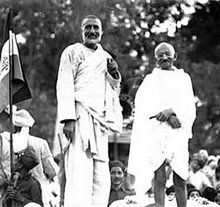I must confess that it has taken me a long time to reach the place where I am willing to identify myself politically, morally, religiously, with Pacifism. The reason for my reluctance is that it always struck me as, well, extremist. I never had any problem objecting to the justness of this or that war and, in the late 1970's/early 1980's, I became involved with the nuclear freeze movement. I also objected to Jimmy Carter's revitalization of Selective Service in furtherance of the so-called "Carter Doctrine" in which Carter--yes, Jimmy Carter, look it up--claimed that the United States had a vital national interest in the free flow of oil from the Persian Gulf and, therefore, military intervention in that region to secure U.S. interests would be justified. So when I registered for the draft in the second year of its reinstitution, I wrote across my registration card that I was a "conscientious objector to war in any form." Looking back on that statement a few years later, I decided that it was an overstatement--and wrote Selective Service a letter to that effect. What I had objected to was the Carter Doctrine--not really war in any form. I was not willing to argue that war as such is impossible of moral justification. I felt that it was not at all unreasonable to leave open the possibility that, under some circumstances, war is the lesser of two or more evils.
Today, I am willing to go on record with the conviction that under no circumstances is war the lesser of two or more evils. War is the Mother of Many Evils. Furthermore, I believe that war is, in every case, avoidable in principle. Where war is unavoidable in fact (because one or more parties make unilateral war upon another--such as the unprovoked, illegal, unilateral Anglo-American invasion of Iraq in 2003), I believe that the resulting conflict has no claim to any kind of moral high ground.
That said, I recognize the right of all persons everywhere to defend themselves when assaulted. I also believe that self-defense may take many forms. One model of self-defensive action is Judo. In my view, study of Judo from childhood--both its philosophy and techniques--ought to be compulsory around the world.
Now, I recognize that skeptics who read these words are smirking. What will Judo do against cluster bombs? The obvious answer to the question as asked is "nothing." Those skeptics who think that, by posing such a question, they have just played the insurmountable trump card to Pacifism must think again. The conversation about the moral justification of warfare does not end with this question; rather, it begins with it. For what are we doing with cluster bombs in the first place? Part of the real "problem with Pacifism"--and I concede that there is a real problem with Pacifism--is that it is typically invoked once war, or its preparation, is underway. Too often, Pacificism is a fancy name for passivity. But passivity in the face of evil is not morally justifiable. And the evil of warfare does not reside solely in bombs and bullets. The evil of warfare resides in the heart where murder for particular purposes is legitimated.
I therefore subscribe to an active, even aggressive--dare I say "militant?"--Pacifism. A Pacifism that recognizes the urgent need for a moral revolution to take place; a revolution that will restore to every individual who associates him or herself with war in any form--its preparations, execution, its many industries--the burden of shame that morally healthy individuals ought to feel in such circumstances. This is the task for Pacifism today.
Subscribe to:
Post Comments (Atom)



No comments:
Post a Comment